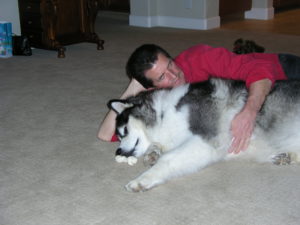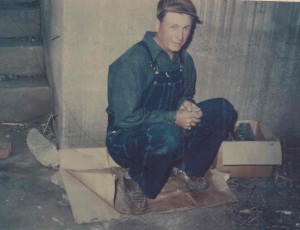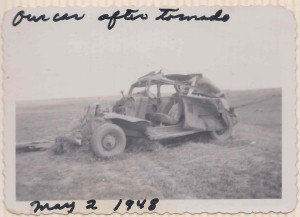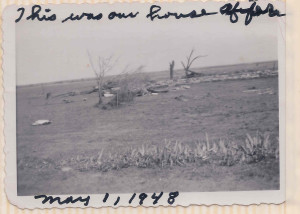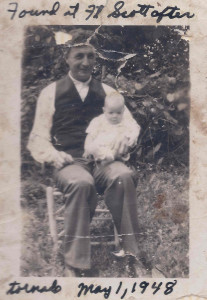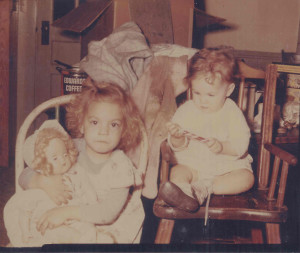Jerusalem, Israel March, 2017
March 25th signaled our final day in Jerusalem and filled us with memories. It was Saturday, the Jewish Sabbath and a free day for us. It was also our son’s forty-fifth birthday.
He had celebrated his fifth birthday in our Jerusalem apartment, and his paternal grandparents were visiting us. They were commemorating their fiftieth wedding anniversary. Jim and I had decided Israel, with all its significance for us, was the place for us to celebrate that momentous milestone.
Our hotel arranged for a three-hour taxi excursion to visit our former home in Kiryat HaYovel, the monster slide our son had played on, the Israeli kindergarten he attended, his pre-school and the building of the Jewish Christians with whom we had worshipped.
Our Arab Muslim driver met us in the hotel lobby and escorted us to his van. My husband, our son, his partner and I climbed in the van and rode to the park that contained the slide. Our son’s face lit with a smile. He remembered it and so did we. The monster was ugly. It was formed like a face with small pointed ears on the top of the head. It was narrower at the top and as it sloped downward it spread as if to make a splash. The cameras came out as Todd walked behind the slide and up the stairs to the top. We then ran to the front and click, click, clicked our cameras as he slid down one of the three red tongues coming out of the black and white striped head. We laughed and chatted with one of the young mothers sitting near there and explained our presence.
Our driver then made his way to our apartment building, which was not far from the park. We spotted it and asked him to stop. We got out and walked down the sidewalk gawking, not quite comprehending. The structure had a slight curve and spanned more than the length of a football field. There were small air conditioners in some windows. None existed when we lived there. And the lovely balconies now had walls built out to the railings. I wondered if there were still black-out shades to pull down in case of war. The ground floor contained bomb shelters and storage closets.
We searched for the entry that led up the narrow stairs to our old apartment. Our son knew where it was. I felt lost. The walls closed in on us as we trekked to the third floor. It was dark and only a low voltage light bulb shed light. We had seen on the mailboxes the name of our former neighbors and we knocked on their door hoping they still lived there or perhaps one of their children. No one answered.
The space behind the building was covered with asphalt. In the garden behind the rock retaining wall, our son had buried his pet miniature turtle. He and his partner walked the length of the space and huddled together talking. Jim and I conversed by ourselves, remembering the many times we had walked the stairs to the parking lot above. When we joined our guys again, our son shed tears. We asked why. He said he didn’t know except that the apartment was the first home he remembered. He recalled how he felt different—blond hair versus dark, non-Jewish and in a school where Hebrew was the spoken language. A bit of shame overtook me and I said I was sorry for subjecting him to that. He and Will reminded me that all children feel that way. It’s part of growing up.
I didn’t cry as I reminisced. Perhaps because our three years there were intense. The first year, my husband and I attended the school for overseas students on Mount Scopus, a part of the Hebrew University. We were immersed in language learning and subjects related to the Jewish people. Our son was in pre-school at a Finnish Lutheran Missionary Society school. He became ill with scarlet fever and it took nine months to get him well. Overwhelmed, I tried to keep up with studies, take Todd to the doctor and labs for blood work, all the while afraid I wasn’t understanding the often poor English of the medical personnel.
Cultural adjustments had to be made. Israelis and perhaps all Jews think, based on Talmudic writers, you agree with them if you remain silent in a debate or argument. Jewish students and scholars always debate and question the written words of the Bible (Tenach), Talmud and Mishna. Buying furniture, a car and a washing machine took all of our Friday mornings for a while. I had to squeeze grocery shopping in before sundown too. Tired to the bone, I tried to make an appetizing meal for the beginning of the Sabbath, which became family time for the three of us. Saturday morning we worshipped and then relaxed the rest of the afternoon or did homework. Sunday we began our routine again. All the things that make life what it is were more difficult in a foreign country.
Across the street from our home, small apartment buildings made of stucco still stood. Years ago they had housed mostly Jewish immigrants from Arab countries. The three of us had fond memories of Todd’s best friend, Mani. They used to walk down the path to the required Israeli kindergarten both of them attended. It was in a small one story building with a bomb shelter inside. Parents had to take turns doing guard duty, as did I, but without a gun. (Schools for older children were fenced and had armed guards.) One day, I asked the teacher what to do if a terrorist came. She said, “Yell, and run inside.” I said okay but figured I wouldn’t live to tell the story if it happened.
Now, we couldn’t find a path to the kindergarten. Gardens and additional apartment buildings filled the land. Disappointed, we walked back to the van.
Our driver asked if he could drive to his house so that he could give his daughter her notebook, which she had left in the vehicle. It wasn’t too far and we were surprised to find a Muslim neighborhood in the area. He explained he was born in the Old City in the Muslim Quarter, but his family had been edged out of their home there. Fortunately, the family owned land in this area and a home built of hewn stone was on it. He wanted to rebuild the house and a contractor proceeded. However, his skills were less than stellar and in a storm the walls fell. Our driver decided to build the house. Including the time to wait for a building permit from the Israeli government and build the house, ten years passed before it was finished. His story was important to us. His neighborhood was peaceful among the Jewish neighborhoods without the use of fences.
Our next stop was across Jerusalem in search of our son’s preschool, which was run by the Finnish Lutheran Missionary Society. He was three when he started there and was somewhat prepared for Israeli kindergarten since Lisu, his teacher, taught a little Hebrew and Arabic. Todd loved his teacher. Now, however, a private residence was there and enclosed by a wall and a locked gate. We fared no better when we saw our old place of worship. Its gate was also locked. We returned to our hotel and then walked to the International YMCA for an early birthday dinner.
I’d be remiss in my descriptions if I didn’t write about the discussion with our driver. He was adamant that all humans are equal and important regardless of religion, race or political persuasion. We agreed and Jim described his involvement with an interfaith community in our area in the States. He told of his attendance at the interfaith solidarity gathering held at the mosque in Walnut Creek, California where at least two-hundred and fifty people attended. Our driver was delighted. I’m glad we shared stories. Human to human and in friendship.
Everyone has a story. What is yours?

